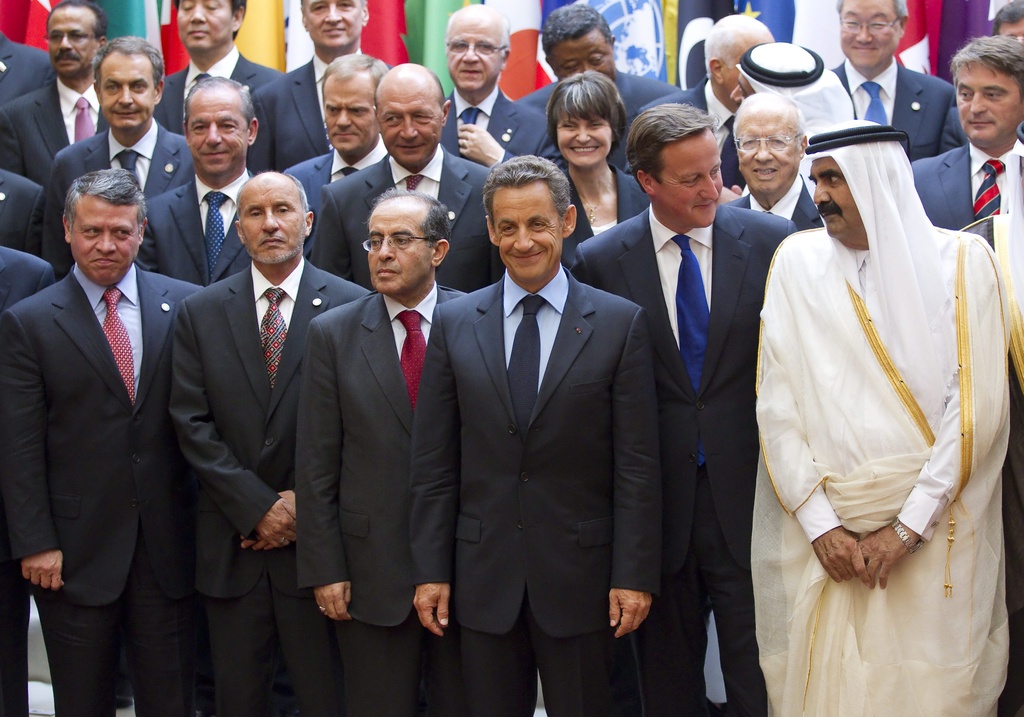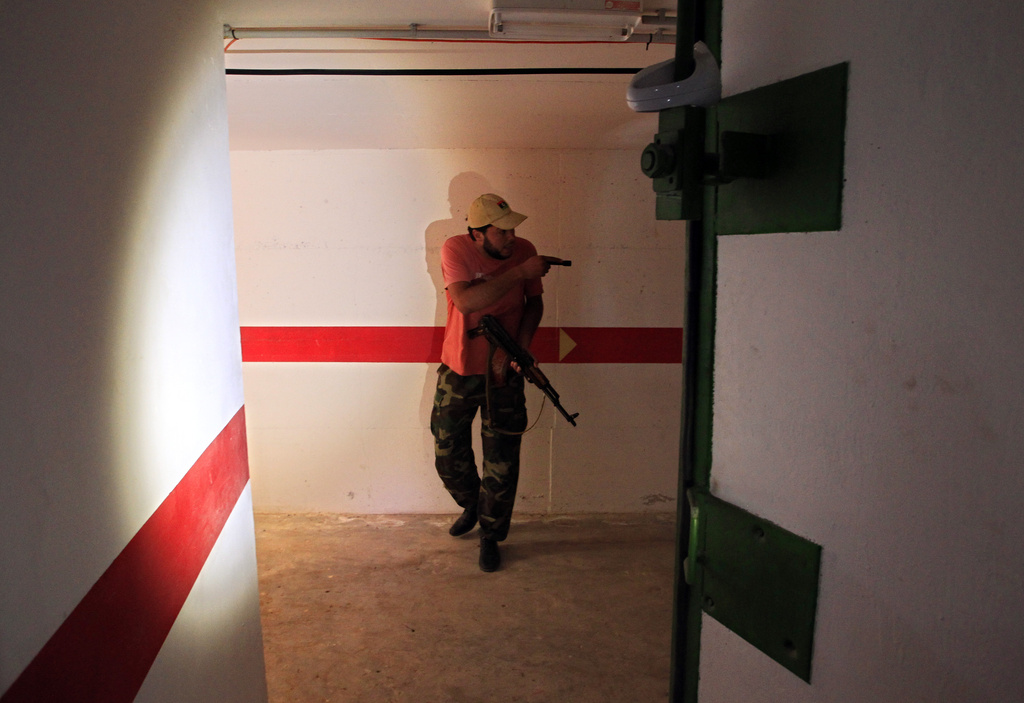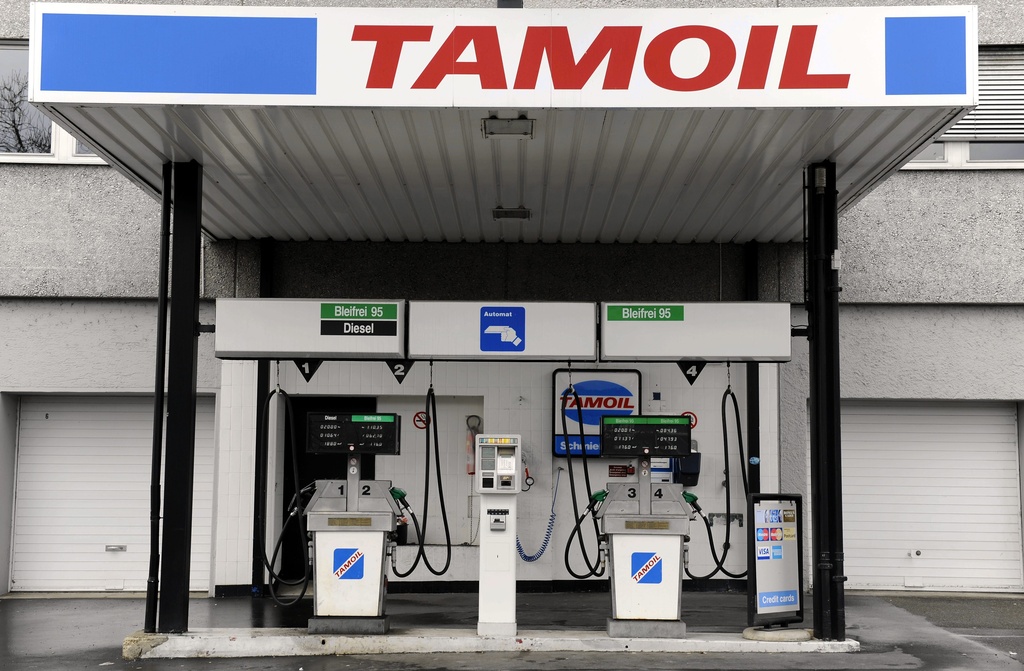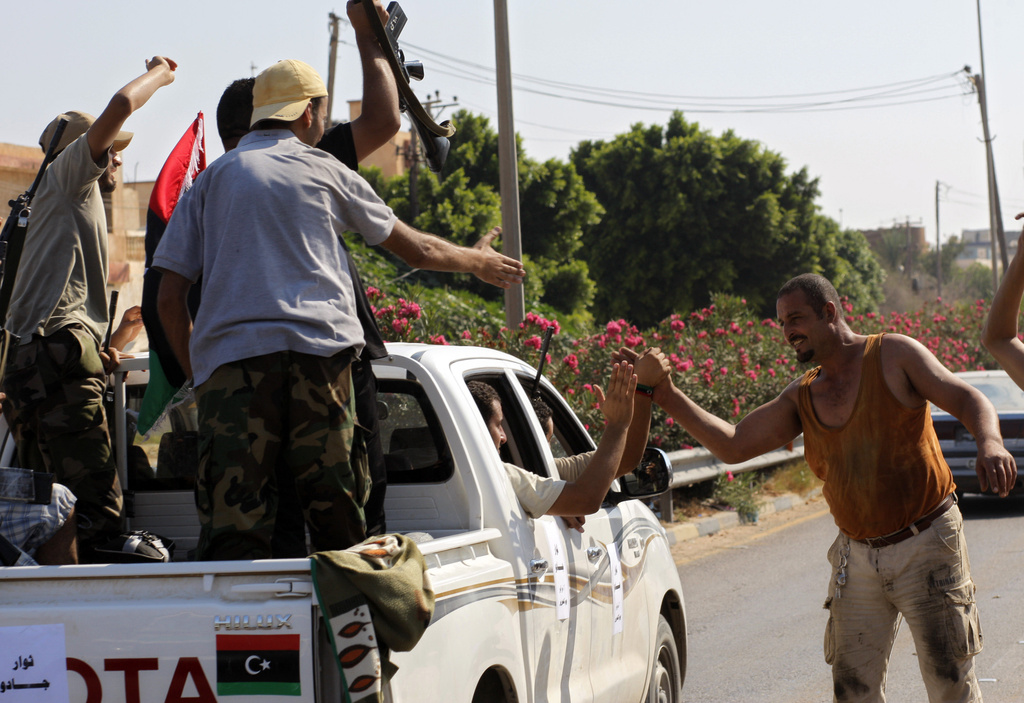Swiss to return Libyan assets

Switzerland is seeking United Nations permission to unfreeze some of the Libyan assets it blocked after the start of the uprising against Moammar Gaddafi.
Foreign Minister Micheline Calmy-Rey said on Thursday that Switzerland wanted to hand over as soon as possible $420 million (SFr334 million) belonging to Libyan public entities “for the benefit of the Libyan people”.
Speaking at an international conference on the future of Libya in Paris, she said the international community had the duty to hand back the money “to satisfy the urgent humanitarian needs of the people, and to help in the reconstruction of the country”.
“Bern is ready to offer its good services in three main areas needed for the reconstruction: disarmament, reform of the security apparatus and mine clearing,” Calmy-Rey said.
Switzerland is also prepared to help Libya in establishing a state based on the rule of law. Calmy-Rey stressed the importance of promoting the role of women in the new Libya. Swiss experts could also participate in a UN political mission, she said.
She announced that Switzerland would “reactivate” its embassy in Tripoli “as quickly as possible”.
In all, Switzerland froze Libyan assets worth SFr650 million earlier this year after the UN imposed financial sanctions on the North African country over its crackdown on the rebel uprising.
State-owned entities such as the Libyan central bank and the Libyan National Oil Corporation will now be able to access the funds.
State-owned funds
Most of the blocked Swiss accounts belonged to the Libyan state, which made it straightforward for Switzerland to release the funds again, according to the government. Any funds now claimed by fugitive leader Gaddafi and his clan will first be vetted by Swiss authorities.
Earlier on Thursday France unblocked €1.5 billion (SFr1.7 billion) in Libyan assets and the European Union announced the lifting of sanctions against 28 Libyan “economic entities”, following the release of funds for Libyan opposition forces by the United States and Britain.
The Paris conference brought together 60 countries counting themselves as the “Friends of Libya” – Switzerland included.
The meeting was hosted by British Prime Minister David Cameron and French President Nicolas Sarkozy, both of whom have spearheaded the West’s intervention in Libya.
It was the first international gathering for the rebel-backed National Transitional Council (NTC), and the talks included UN Secretary-General Ban Ki-moon, leaders of Nato, the African Union, the Arab League and the Organization for Islamic Cooperation.
The conference was held on what would have been the 42nd anniversary of Gaddafi coming to power. On the agenda were the unfreezing of assets as well as the political and economic reconstruction of the North African country in the wake of Gaddafi’s collapsing regime.
Opening the afternoon talks, Libya’s National Transitional Council presented a road map for the next 18 months which included a new constitution and elections.
Aid on the ground
For its part, Switzerland has been supporting the transition in Libya since early in the uprising.
In March it was one of the first countries to open a humanitarian aid unit in Benghazi. A special envoy was then sent to the rebel-held city in July to develop ties with the Libyan National Transitional Council and protect Swiss interests on the ground. A liaison office is being opened. (The Swiss Embassy in Tripoli has been closed since February.)
“By sending a special envoy to Benghazi, Switzerland is signaling its intent to strengthen its presence there,” said a government statement back in July.
The foreign minister met an NTC representative in March, and named the NTC as its main contact until such time as a legally elected government is in place.
It is part of a bigger strategy to support transition processes in North Africa, to which the government has allocated SFr12 million to go into humanitarian aid, migration and economic development projects. It has also pledged 14 extra aid workers.
“Switzerland has a major interest in stable and democratic structures in North Africa and the Middle East and in view of this it wants to actively accompany and support the transition to democracy in this region,” said the government.
Swiss humanitarian aid is focusing in particular on minorities and groups needing protection.
A programme office has opened in Benghazi, and its measures include:
-Distributing emergency aid to displaced people in the Benghazi region
-Delivery of medicine to hospitals in Tobruk and Benghazi
-Delivery of 20 tonnes of milk powder for babies
-Help in buying emergency medical equipment
-Support for International Committee of Red Cross medical activities
-SFr1 m given to International Organisation for Migration
-Equipment for the Swiss Red Cross
-Support looking after refugees
(Source: Swiss Agency for Development and Cooperation)
Austria: €1.2 billion
Britain: €12 billion
Canada: C$2.3 billion
France: €7.6 billion
Germany: €7 billion
Italy: $8 billion
Luxembourg: €1 billion
Spain: €2 billion
Switzerland: SFr650 million
United States: $34 billion
On August 25 the United States and South Africa struck a deal to allow the release of $1.5 billion in frozen Libya funds for humanitarian aid and other civilian needs.
Britain said on August 30 the United Nations had agreed to its request to release $1.55 billion of Libyan bank notes.
France on September 1 released €1.5 billion of Libyan assets. The approval by the UN Sanctions Committee will release about one-fifth of the total Libyan assets parked in French banks.
Italy has begun unfreezing €350 million of Libyan funds in Italian banks as a first step in a broader effort to unblock all of the country’s assets.
Spain has asked the UN to allow it to unblock €350 million to make them available to the transition government in Libya. It’s already freed up €16 million of that for humanitarian aid to the transitional government.

In compliance with the JTI standards
More: SWI swissinfo.ch certified by the Journalism Trust Initiative












You can find an overview of ongoing debates with our journalists here . Please join us!
If you want to start a conversation about a topic raised in this article or want to report factual errors, email us at english@swissinfo.ch.